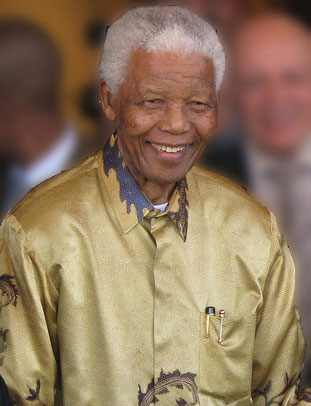Last week the world lost a man who truly changed the course of history.
Nelson Mandela dedicated his life to seeing change come to South Africa. He went from brash revolutionary, to political prisoner, to statesman, and along the way taught the world about perseverance, forgiveness and reconciliation.
The reverberations were felt all over the world. This week a state memorial was held and the Prime Minister of Canada, and the Premier of Alberta attended. A number of Drumheller residents were also affected by the loss of the leader, including some with strong ties to South Africa.
“Strangely enough as a white South African, my two heroes have been black. They are Mohammed Ali and Nelson Mandela. Both fighters, both champions. They never gave up and followed through,” local lawyer Colin Kloot told The Mail.
Kloot grew up in South Africa during Apartheid. Quite simply put, he explains South Africa trailed the Western hemisphere’s civil rights movement by a couple of decades.
When Mandela was jailed for sabotage and conspiring to violently overthrow the government in 1963, Kloot was aware of the privilege he had compared to his fellow countrymen.
“I grew up to young adulthood where blacks had separate park benches, where they had separate beaches, and entrances to places like the post office or the bank, the butcher, the baker. There was a time where they weren’t able to buy liquor,” he said.
He recalled as a schoolboy a siren would sound at 9 p.m. and all black people had to be off the street.
“They were really treated as second-class citizens and as a white, you grew up in the system until you were able to think about it and formulate your own ideas,” said.
While Mandela was imprisoned on Robben Island, due to his efforts, his colleagues, and the effort of politicians, change came slowly.
Politically the African National Congress (ANC) was outlawed, but even with most of its leaders jailed, still operated. Politicians like Helen Suzman stood as an opposition to the National Party and continued to keep change in the consciousness of the country.
The international community also stepped up its effort for change.
“There were pressures from outside. There were boycotts carried out by the United Nations where South Africa and its products were boycotted. All major companies withdrew like Hoover, like 3M and Kodak, Ford, GM,” he said. “Our sports teams and our trade missions were boycotted. I was selected for a national volleyball team and we couldn’t go anywhere, nobody would play us,” said Kloot.
Change began to happen. As the National Party began moving toward the centre, some radical tangents of the party splintered.
There was revolution. Kloot says there was violence and bomb blasts were commonplace.
Opposition was mounting steadily, the writing was on the wall,” said Kloot. “There were massive riots… it had to come.”
When William de Klerk came to power, he released ANC prisoners and then Mandela.
From revolutionary, he became a leader in negotiating the end of Apartheid, became president and allowed for the Truth and Reconciliation Commission to begin healing.
Kloot says like much of the world, he wasn’t surprised of his death as Mandela had been sick for some time. It is a blessing that Mandela was able to see through the political change. Had he died while he was in power or even shortly after, Kloot feels there could have been a lot more bloodshed.
“I hope the death of Nelson Mandela is not an excuse for certain extreme wings in South Africa to exercise anarchy and the opportunity to riot, a call for calm is what is required."
“He was a great man and I am sure I speak on behalf of all South Africans, whites and blacks, you would have to be a fool to hate Mandela. Sure he is not above criticism for the way he acted in his early life, but boy, we could all take a page out of his book on how to be humble and ethical, how to rule a country and call for peace.” Photo: South Africa The Good News / www.sagoodnews.co.za
Photo: South Africa The Good News / www.sagoodnews.co.za







